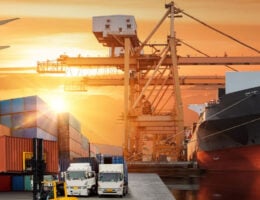Baker McKenzie’s Sanctions Blog published the alert titled Further amendments to UK Russia Sanctions on 21 June 2023. Read the article via the link here. Please also visit our Sanctions Blog for the most recent updates.
The European Commission previously announced plans to include binding valuation information decisions in its customs legislation. The Commission has published the draft Delegated Regulation and obtained feedback from a public consultation, which ended on 18 January 2023. The Commission describes this move as the completion of an already well-established legal and operational framework for issuing decisions relating to binding tariff classification information and binding origin information.
The United Kingdom has agreed with the European Union a new Brexit deal for Northern Ireland which seeks to significantly reduce the number of checks on goods going from Great Britain to Northern Ireland. The Windsor Framework would create two ‘lanes’ for goods which are arriving in Northern Ireland from Great Britain: A green lane for…
On 6 February 2023, the European Council published Council Regulation (EU) 2023/246 on the exchange of information in electronic registers in the Official Journal of the European Union. The (recast) regulation extends the obligation to maintain electronic registers relating to economic operators who move excise goods between Member States for commercial purposes from 13 February 2023.
A series of new rules were rolled out on 13 February 2023 which will make the taxation of alcohol, tobacco and energy products fully paperless across the EU. They are part of a wider expansion of the common excise duty provisions in the EU. The aim of this new standardized electronic system is to alleviate some of the rigorous procedures faced by energy suppliers and small producers of alcohol.
On 4 January 2023, the new UK subsidy control regime under the Subsidy Control Act 2022 came into force. This completes the overhaul of the UK’s approach to subsidies following Brexit and the UK’s decision to diverge from the EU’s State aid regime. The new rules will apply to subsidies granted by public authorities on or after 4 January 2023.
The UK government has introduced a bill to help bring into force the UK-Australia and the UK-New Zealand Free Trade Agreements (“FTAs“).
The bill is a key step in ratifying the FTAs but before they come into force, Parliament must scrutinise the FTAs, agree the bill and pass secondary legislation to make the changes required to the UK’s procurement regime to meet the terms of the FTAs.
Baker McKenzie’s Sanctions Blog published the alert titled UK releases new trade, aviation and shipping measures against Russia on 14 March 2022. Read the article via the link here. Please also visit our Sanctions Blog for the most recent updates.
Following developments on the Russia-Ukraine border, Baker McKenzie invite you to join us for a webinar to help prepare your business for the possible impact of instability in the region. While the international business community very much hopes for a de-escalation of the situation, we are well-positioned in all relevant jurisdictions to help you anticipate and deal with various measures that may potentially be imposed should matters escalate further.
On 24 January 2022, the European Council approved certain conclusions asserting that European security is indivisible, that challenges to the European security order affects the security of the EU and its member states, and that the EU will provide unwavering support for the independence, sovereignty and territorial integrity of Ukraine and other neighbouring states. The European Council has condemned Russia’s actions with respect to Ukraine and has stated that further military action by Russia against Ukraine would have consequences.







